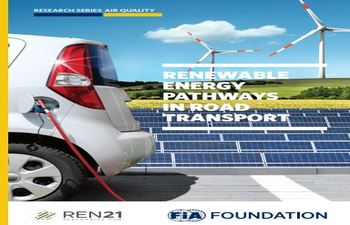Knowledge Hub
This presentation by Bernard Jacob, Scientific Division, IFSTTAR Technical Committee B4, PIARC highlights about the ERS Technologies, projects and the benefits of ERS.
Quantifying the Electric Vehicle Charging Infrastructure Gap Across U.S. Markets
2019
Author(s): Nicholas M, Hall D, Lutsey N
This report quantifies the gap in charging infrastructure to power more than 3 million expected electric vehicles by 2025. Based on the expected growth across the 100 most populous U.S. metropolitan areas, the authors estimate the amount of charging of various types that will be needed to power these vehicles.
Quantifying the Electric Vehicle Charging Infrastructure Gap in the United Kingdom
2020
Author(s): Nicholas M, Lutsey N
The United Kingdom (UK) has seen rapid growth in the electrification of its passenger car market, and the trend is expected to continue. Plug-in electric models represented 3% of new passenger car registrations in 2019, and that share has approximately tripled in the first half of 2020.
Real-World Usage of Plug-In Hybrid Electric Vehicles: Fuel Consumption, Electric Driving, and CO2 Emissions
2020
Author(s): Plötz P, Moll C, Bieker G, Mock P, Li Y
Plug-in hybrid electric vehicles (PHEVs), which combine an electric and a conventional combustion engine drive train, offer the potential to reduce global greenhouse gas (GHG) emissions and local air pollution if they drive mainly on electricity. This report provides an analysis of real-world usage and fuel consumption of approximately 100,000 PHEVs in China, Europe, and North America.
Regulatory Pathways for Zero-Emission Vehicle Mandates
2019
Author(s): Rokadiya S, Bandivadekar A, Yang Z
This briefing summarizes a number of regulatory pathways that have been used globally to deploy zero-emission vehicle (ZEV) mandates or comparable policies, as these are central to efforts driving the early uptake of electric vehicles in key regions.
Constitution of Apex Committee for Implementation of Paris Agreement (AIPA)
2020
Publisher/Organisation: Ministry of Environment, Forest and Climate Change (MoEFCC)
The Ministry of Environment, Forest and Climate Change released this notification on 27th November 2020 listing the members of the ‘Apex Committee for Implementation of Paris Agreement (AIPA)’ as constituted by the Central Government. All the activities and functions of the Apex Committee are duly mentioned in this notification.

A rapid and fundamental shift is required in transport to enable the decarbonisation required to meet the objectives of the Paris Climate Agreement, with actors in both the energy and transport sectors working together.
India Roadmap on Low Carbon and Sustainable Mobility
2020
Author(s): Federation of Indian Chambers of Commerce and Industry (FICCI)
This report indicates the clear thrust needed on public transportation, shifting paradigm to movement of people more than the paradigm of movement of vehicles as the effective means to reduce congestion, air pollution, and vehicle kilometres.
Who Will Drive India’s Two and Three-Wheeled EV Segment?
2019
Author(s): Parikh A
The EV (Electric vehicle) revolution has just begun in India. The adoption of EVs in India is poised to grow in the coming years, although battery charging infrastructure remains a valid concern among potential consumers.
Security Architecture for Electric Vehicle Charging Infrastructure
2019
Author(s): ElaadNL, European Network for Cyber Security (ENCS)
This document provides a recommended security architecture for EV charging infrastructures. It gives a set of technical security measures that CPOs can use to mitigate the risks of cyber-attacks.



